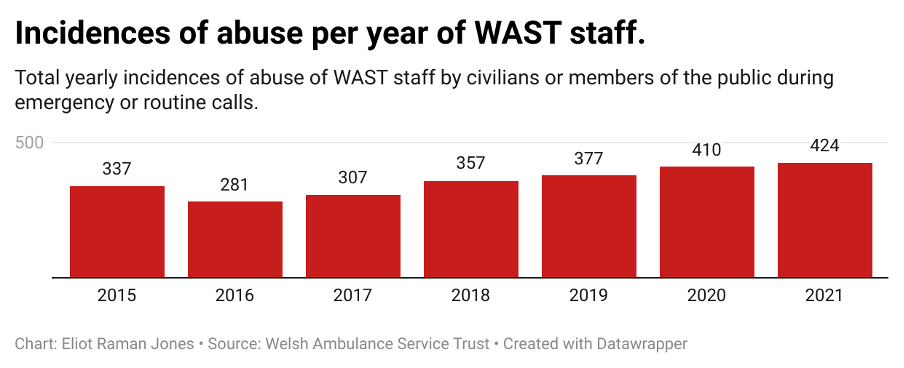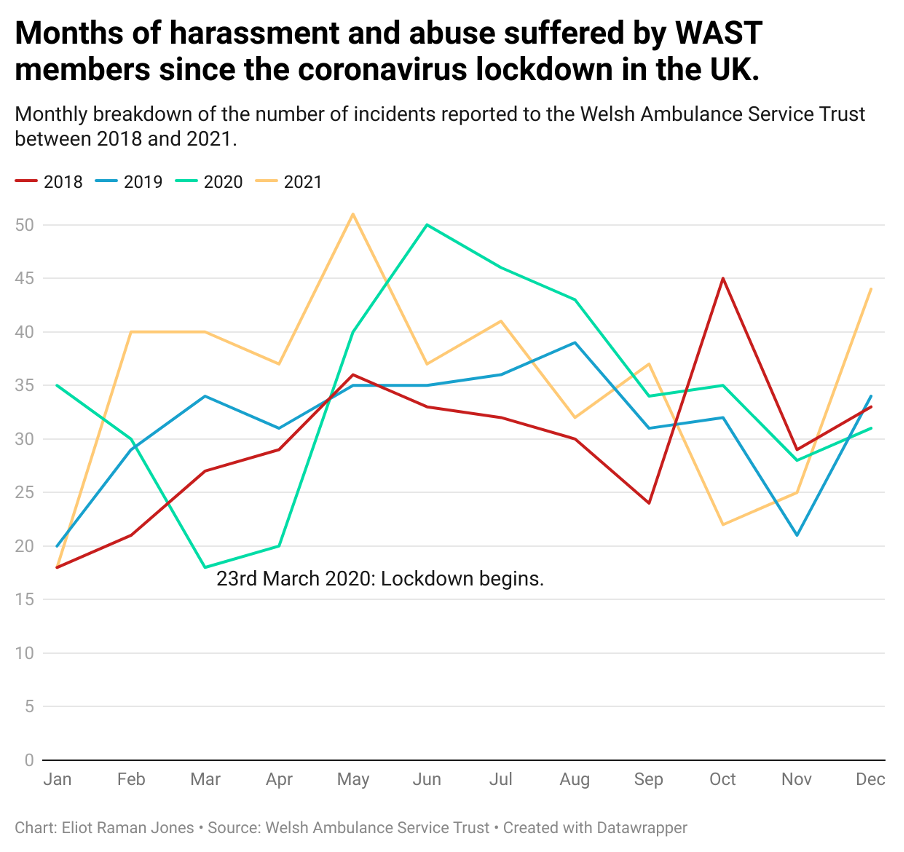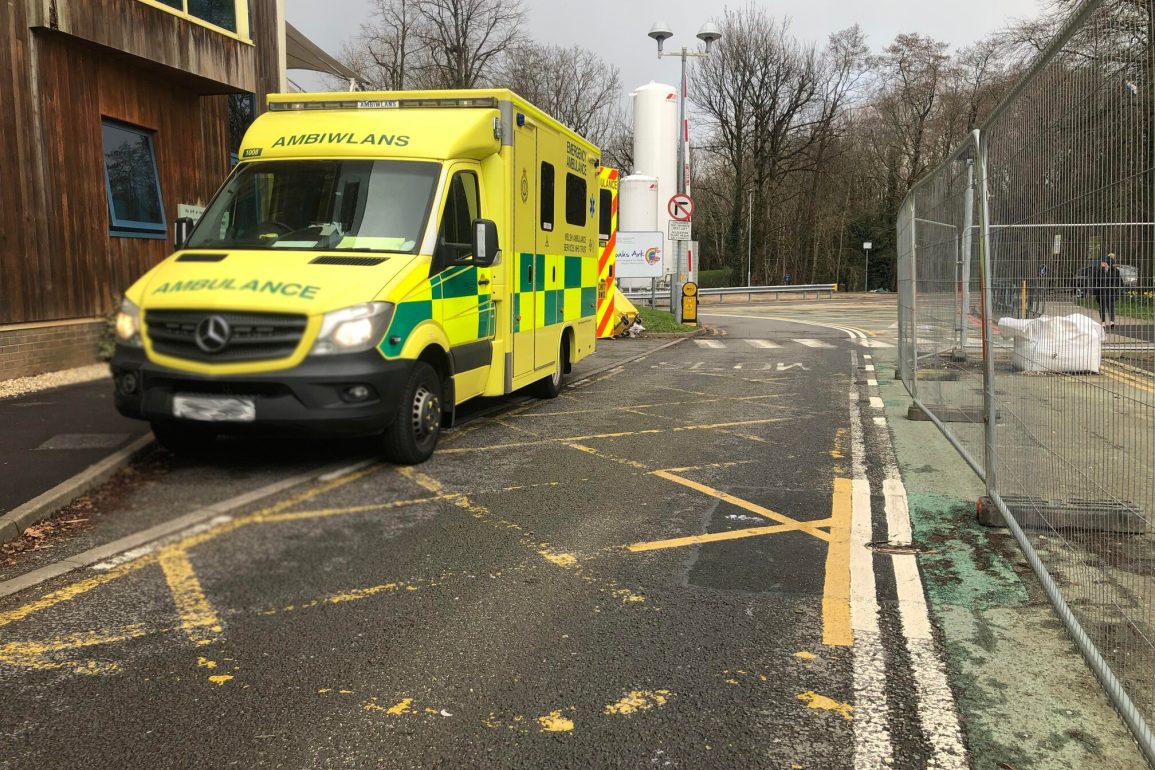Reports of harassment and physical abuse against paramedics and first responders average more than one a day
REPORTS of abuse directed at members of the Welsh Ambulance Service Trust (WAST) are at their highest level of the last five years.
Last year saw 424 incidents of abuse of WAST staff while they were responding to normal and emergency calls, up 14 from 2020.
The peak in figures comes after a steady six-year rise in incidents of abuse since 2016.
The figures were obtained via a Freedom of Information request by The Cardiffian and include both physical abuse – such as kicking, punching, head-butting and spitting – as well as verbal abuse including racist, sexist and abusive comments.

“Our ambulance crews are there to help people, but they can’t fight for someone’s life if they’re fighting for theirs,” said Jason Killens, Chief Executive of the Welsh Ambulance Service.
“Our crews might have no choice but to leave a scene if their personal safety is compromised, and this isn’t helpful for anyone, least of all the patient.
“A split-second act of violence can have a devastating and long-term impact on our staff, both physically and emotionally.
“The debt of gratitude we owe to our emergency workers has never been greater, so now more than ever, we’re asking the public to work with us, not against us.”
The rise in cases of abuse comes despite the With Us, Not Against Us campaign by the Trust, which began in May of last year.
The campaign aims to raise awareness of assault against emergency service workers.

Attacks on emergency service workers have also increased during the pandemic, especially since lockdown.
After March 23, 2020 when the national lockdown was first announced cases of paramedic and first responder abuse and harassment skyrocketed.
They have remained at a high level ever since.
Ambulance workers say that the fear of catching the virus has left the general public stressed and more prone to outbursts during calls.
Lisa O’Sullivan, a paramedic from Blackweir in Cardiff, was spat at by a patient in August 2020 while responding to reports of a man having a seizure in Callaghan Square.
She said: “I tried to defuse the situation by telling him my name and explaining what I was trying to do, but then he spat at me, which caught my face and my arm.
“We were in the middle of the pandemic and even though I was wearing PPE, I had no idea whether he had Covid-19, let alone what other blood-borne diseases he may be carrying.
“It was traumatic. I felt hurt. I was there to help him and that’s how he treated me.”
Nine of the 12 months of 2021 saw incidents of harassment and physical abuse climb above 30 cases, or more than one a day.
The most violent period for attacks was May 2021, which saw 51 reported cases of abuse, an average of almost two incidents a day. This was the same month in which the Trust’s campaign was introduced after it became clear that ambulance crews require greater protection.
More than 100 soldiers, sailors and airmen were drafted in to help the Trust in October last year.
Judith Paget, Chief Executive of NHS Wales, said: “Our emergency workers provide life-saving and life-changing care every day in often difficult circumstances.
“Any form of attack on our emergency workers is completely unacceptable, and we are doing everything we can to work with NHS Wales employers and our partner agencies to eradicate physical or verbal assaults on staff.”



